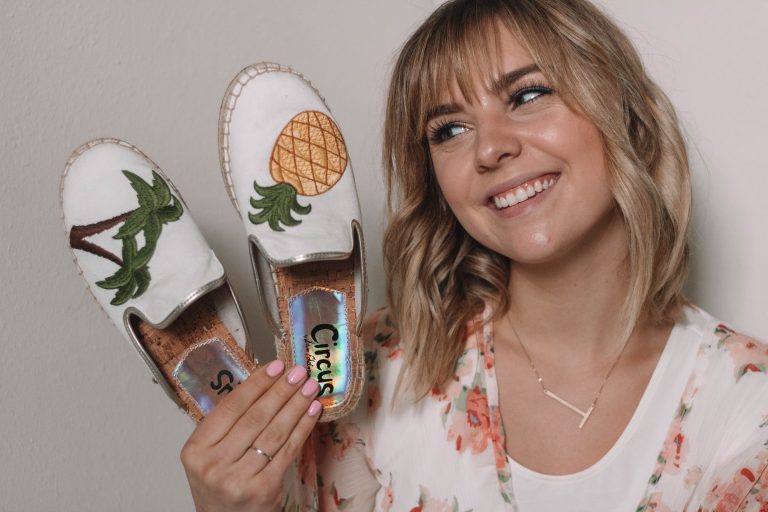Hey there, friends! Happy TUESDAY! I am pretty excited because today kicks off a really amazing partnership with a brand that I truly love from the bottom of my heart: Royal Canin. If you follow me on Instagram (head over to my profile HERE if you don’t already), you’ll remember that a few weeks ago, I shared some awesome BTS of my trip to the Royal Canin headquarters for their influencer immersion day. We got to hang out at HQ and learn about the ins and outs of their products from animal nutritionists, veterinarians and product developers. Being the biochemist I am in my heart (thank you college degree!), I really appreciated how thorough they were in their presentations and how transparent they are with their information. I always want to bring you guys ONLY the very best and most accurate information possible – especially when it comes to our pets. They truly are members of the family, and I wouldn’t recommend it if I didn’t also feed this to my cats. NOW. With that out of the way, let’s talk about cats, their ideal diet and how you can make sure they are getting the nutrition they need to be happy and healthy. Let’s dive into this.
Healthy Cat Guide: Diet & Nutrition Tips
This post is sponsored by Royal Canin. All opinions are mine and mine alone.


Cats & their IDEAL diet.
Cats are amazing. They are sweet, independent, snuggly, incredibly smart…I am constantly amazed by my two favorite felines. If you are new here, I have two adorable cats:
Isabel, a spunky 1.5 year old tortie with the world’s biggest attitude (but also a total sweetheart when she wants to be). She is pretty little, weighing only 7.5 lbs. Izzy has been told by our vet that she has “one of the shiniest coats of an adult cat she’s ever seen”, so she kind of has a big head about it. She also has half of an orange mustache and it’s our favorite part about her face. She was adopted last Valentine’s Day from the shelter at 8 weeks old and has been attached to my hip since that day.
Chester is a stray-turned-housecat. We found him stuck in a bush outside our apartment complex, covered in scratches, ticks, ear mites and fleas. He was only about 12 weeks old. We also found out after bringing him to the veterinarian that he had one of the worst cases of worms in his intestines, likely having been passed from mother to kitten when he was born. After bringing him back to full health, we realized we were totally in love with his sweet personality, and had to have him for our own. He and Izzy became fast friends and he was the PERFECT addition to our family. Chester loves sleeping in the sun, purring for EVERYONE and eating all things all the time.


Now that you know all about MY cats – let’s chat about their dietary needs as a feline. They specifically need protein, water, fats and essential amino acids (most notably: taurine). In the wild, cats eat small rodents, birds and insects. Those are good sources of fats and protein and they help keep a cat active and full of energy – and they are foods that have naturally occurring taurine (that über important little amino acid mentioned above). These ingredients are found in most cats foods, but the quality isn’t the same all the way across the board.
Something else to consider about house cats, in particular: cats that are indoor-only tend to be more overweight than cats that go outdoors. They are more than likely spayed/neutered (which can cause weight gain due to hormone reduction) and have decreased activity levels. That means you want food that is going to fill their bellies with all the essential nutrients they need to be healthy, without having to overeat.
Not only do you have that to think about – but even cats have their picky tendencies. Cats can have sensitive stomachs, flavor/scent preferences, food allergies, etc. just like people can, so you want to keep in mind you specific pet when choosing the diet that is right for them, too. For example: my parent’s cat, Bubbah, has asthma and needs a specific kind of cat litter that doesn’t have dust to keep that in check. Similarly, if you have a cat with a food allergy, you’d want to make sure you were feeding them the appropriate food to handle that situation.
How to get them the nutrition they need.
Ok. So now that we know what kinds of food they need, and what things to look out for in our specific cats, how do we ensure that they get the absolute BEST nutrition possible? There is SO MUCH conflicting information out there about what is and isn’t good in an ingredient list, so it’s definitely important to do your research from credible sources. Use THIS GUIDE when deciding how up-to-snuff your nutrition for your pet is, talk to your vet about your pet’s specific needs and also, use these resources here and here if you have even more questions about pet nutrition. Unfortunately, many of the things we read on the internet are false or skewed information so I made sure to link credible sites for you to use.


How is Royal Canin different?
They have four goals for health nutrition, to start with. They focus on the actual science behind animal nutrition and always put the animals first in the formulation process. They use optimized ingredients with prime nutritional content so your pet is getting the best of the best. The following was taken directly from the Royal Canin website:
Four Goals For Health Nutrition:
- Body development and maintenance: Amino acids, minerals, vitamins and fatty acids meet the basic nutrition requirements for healthy physical development and maintenance.
- Energy provision: Protein, carbohydrates and fat provide energy to cats and dogs.
- Prevention: The best antioxidants, prebiotics, fiber and essential fatty acids help address kidney issues, digestive problems, the effects of aging and other common health issues.
- Special care: Very specific nutrients can be limited or added in certain formulations in order to help cats and dogs recover from particular health issues.
They also have developed several lines of cat food so that you can choose the exact food that is right for your pet, such as:
- Kitten line
- Adult cat line
- Mature/Senior cat line
- Breed Specific food lines
- Feline Health Nutrition Line
- Feline Care Nutrition Line
You can find all of their cat food lines HERE and your veterinarian can help you choose the best food for your cat’s needs. My cats are in good health, so their Indoor Adult food from their Feline Health Nutrition line works perfectly for both Chester and Izzy. Neither of them really need anything super specific so that is ideal for our family. I would assume most people fall in the boat as well!

PIN THIS FOR LATER:

I know how much we love our pets, and I feel so thankful that Royal Canin loves our pets as much as we do. They have such an amazing, passionate team of product developers, nutritionists, veterinarians and vet techs on staff to create the best pet food on the market. It also helps that my cats LOVE the food (ok, to be totally fair, Chester loves ALL food. But Izzy definitely prefers Royal Canin). I feel better knowing that I am feeding them exactly what they need and that my veterinarian recommends it, too.

I hope you learned something new today, and decide to look more into your pets current nutrient situation to make sure they are getting everything they need in their daily diet! Please let me know if you have any questions below – I am happy to answer them as best as I can.
















